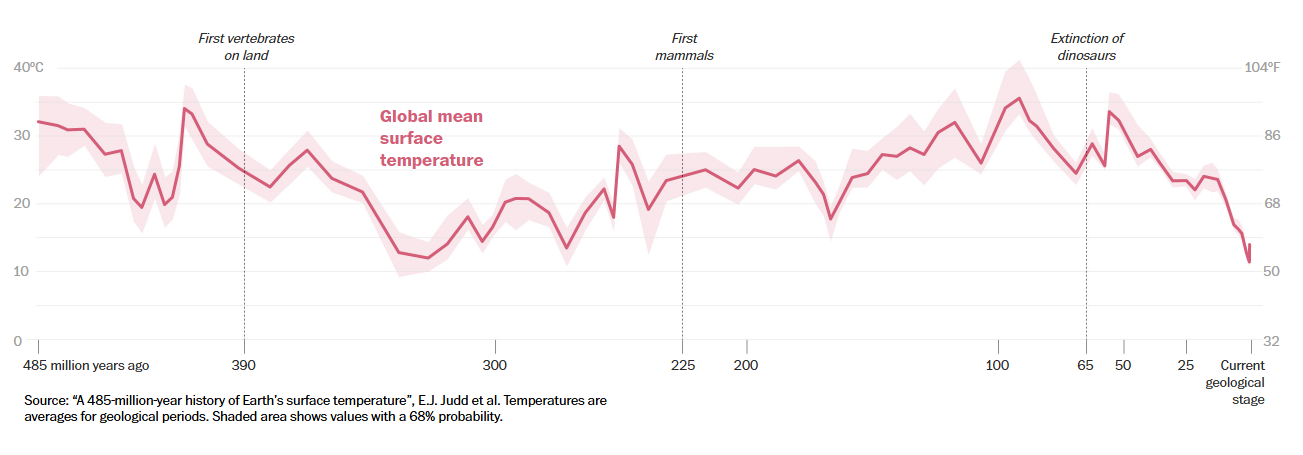Would Slowing Earth Temperature Rise Matter More than Stopping it?
What to Make of 485 Million Years of Temperature History
𝙒𝙝𝙖𝙩 𝙘𝙖𝙪𝙜𝙝𝙩 𝙢𝙮 𝙖𝙩𝙩𝙚𝙣𝙩𝙞𝙤𝙣? Research from Emily Judd highlighted in the Washington Post concluding that earth’s average temperature is warming at a historically rapid rate (vs the last 485 million years), but from a very low base (earth has typically been much warmer,20C+ at times, over the last half billion years).
𝙒𝙝𝙮 𝙞𝙩 𝙢𝙖𝙩𝙩𝙚𝙧𝙨? The study provides context for the earth’s warming trend, and the implications of high temperatures and rapid warming. Human history extends through a cold period in earth’s multibillion year experience, and warming baselines typically go back only a couple hundred years. Warming a few degrees keeps the planet well within historical range, but rapid temperature change (also a feature of recent decades) has proven traumatic for life.
I’m left with a host of questions:
Will the lower baseline enable life to be more resilient if the worst warming models prove accurate?
Will the high rate of change change persist?
Could slowing the rate of change prove more important than arresting warming all together?
𝙇𝙞𝙣𝙠𝙨:
• The Washington Post: Scientists have captured Earth’s climate over the last 485 million years. Here’s the surprising place we stand now.


